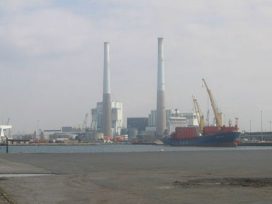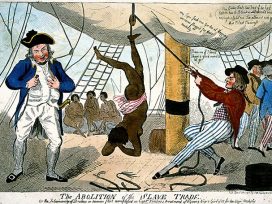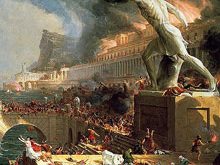The global expansion of higher education allows work traditionally reserved for the West to be done more cheaply and just as well in emerging nations, write Phillip Brown and Hugh Lauder. The result is that the wages and working conditions of western employees no longer set the global benchmark.
Articles
Read more than 6000 articles in 35 languages from over 90 cultural journals and associates.
The controversy around the ruling by a German court that circumcision counts as physical injury once again serves to illustrate conflicts over the position of religion in secular society. Toby Lichtig asks whether male circumcision is a harmless ethnic signifier or the infliction of genuine harm.
Future money
A conversation with James Robertson
Understanding the need to combine economics and ethics amounts to a “Copernican revolution”, says James Robertson, co-founder of the New Economics Foundation. The survival of our species depends on our making the money system work in ways that will “enable and conserve”.
The presidential referendum controversy represents an all-time low for post-communist Romanian politics, writes Valeriu Nicolae. Corruption isn’t likely to disappear any time soon, since an honest political elite working to reform society would lead to a collapse of the entire system.
The revival of neo-Kantian theories of universal peace has led to intellectual justification of foreign “interventions” whose results have nothing to do with democracy. Evidence suggests that democracy does not precede peace but vice versa and that, even were it possible to implement, a global democratic order would not necessarily be more peaceable, writes Rein Müllerson.
Memory laws are the wrong way for Europeans to remember and debate their difficult pasts, argues Claus Leggewie and Horst Meier. Europe needs a pluralism of memory policies. That is why 23 August is a good candidate for a truly pan-European day of remembrance.
Marina Akhmedova spent four days in the company of drug users in Yekaterinburg, central Russia, and was met with a picture of desperation, punctured by love, humanity and misplaced hope. Shortly after it was published, this harrowing piece of reportage journalism was banned in Russia.
Beyond contemporary economic thinking
A conversation with John B. Cobb
John B. Cobb, Methodist theologian and longstanding critic of the of the political-economic establishment, talks to Kulturos barai editor Almantas Samalavicius about his communitarian and ecology-based critique of neoliberalism and the potential for world religions to inform an alternative.
Freedom is a chilly virtue
Michael Ignatieff talks about Isaiah Berlin
“It’s not justice, it’s not equality, it’s not a warm bath.” In Riga to deliver the annual Isaiah Berlin lecture, Michael Ignatieff talks to Ieva Lesinska, editor of Rigas Laiks, about Berlin’s definition of freedom, politics and the freedom not to be political.

Mega-ports
On the new geography of containerization
Ports as points of juncture in the globalized transport network, operating mechanisms of access and arrest; the oceans remapped by containerization, cargo-shipping setting the pace of world commerce; the new harbours as decontextualized zones, nautical memories recycled for heritage: Olivier Mongin outlines a social geography of the global maritime system.

The container is the universal unit of the global commodity society, facilitating the swift exchange of all kinds of product. Precarity, likewise, connotes a basic form of labour that submissively and flexibly adjusts to any form of employment and system of production.

Ghosts on the waterfront
An interview with Marcus Rediker
In an excerpt from his acclaimed book The Slave Ship: A Human History, historian Marcus Rediker describes the deep-sea sailing ship as linchpin of the emergent transatlantic economic order and instrument of terror for slaves brought from Africa to the Americas. In a subsequent interview, he discusses the role played by European harbour cities in the slave trade and their responsibilities in reckoning with its moral legacy.

The European dis-Union
Lessons from the Soviet collapse
Too big to fail? Too crisis-hardened to go under? The collapse of the Soviet Union has something to teach Europe’s politicians if another leap from the unthinkable to the inevitable is to be avoided in the case of the EU, argues Ivan Krastev.
Bosnian novelist Alma Lazarevska remembers the siege of Sarajevo obliquely, as the background to a personal loss unconnected to the plight of the city. She thereby implicitly critiques the politicization of the siege, which is commemorated this year.
Legislation allowing the Olympic organisers to control the “association” of the games with approved products – required by the IOC as a condition of a successful bid – disadvantages the community stakeholders of major sporting events, argues Teresa Scassa.